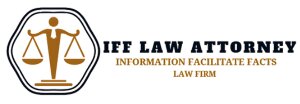Best ADR Mediation & Arbitration Lawyers in Chennai
Share your needs with us, get contacted by law firms.
Free. Takes 2 min.
List of the best lawyers in Chennai, India
About ADR Mediation & Arbitration Law in Chennai, India:
ADR Mediation & Arbitration is an alternative dispute resolution method used in Chennai, India, to resolve legal conflicts outside of traditional court litigation. It provides parties with a cost-effective and efficient way to settle disputes through mediation or arbitration.
Why You May Need a Lawyer:
There are various situations where you may require legal help in ADR Mediation & Arbitration. Some common scenarios include:
- When you want to initiate a mediation or arbitration process to resolve a dispute.
- If you have received a notice for mediation or arbitration and need representation.
- When drafting or reviewing a mediation or arbitration agreement.
- If you believe your rights have been violated during the ADR process.
- When seeking advice on the enforcement or challenging of an ADR award.
Local Laws Overview:
The key aspects of local laws related to ADR Mediation & Arbitration in Chennai, India include:
- ADR is governed by the Arbitration and Conciliation Act, 1996.
- Mediation and arbitration are voluntary processes, and parties must agree to participate.
- Parties have the right to choose their mediator or arbitrator.
- ADR awards are binding and enforceable through the local courts.
- The Madras High Court oversees ADR proceedings and provides necessary guidance.
Frequently Asked Questions:
Q: What is the difference between mediation and arbitration?
A: Mediation involves a neutral third party assisting the disputing parties in reaching a mutually acceptable resolution. Arbitration, on the other hand, is a more formal process where an arbitrator listens to the arguments and makes a final decision binding on the parties.
Q: How long does mediation or arbitration typically take in Chennai?
A: The duration of ADR proceedings can vary depending on the complexity of the dispute. Mediation generally takes less time as compared to arbitration, which follows a more structured process. It is best to consult with a lawyer to get an estimated timeline specific to your case.
Q: Can I appeal the decision reached through mediation or arbitration?
A: In mediation, the decision is reached through mutual agreement between the parties, and it is generally not subject to appeal. In arbitration, the decision is binding, but in exceptional cases, you may challenge it through the appropriate legal channels.
Q: Are ADR proceedings confidential?
A: Yes, ADR proceedings are conducted in private, and the details of the dispute and the resolution reached are generally kept confidential, ensuring the privacy of the parties involved.
Q: How can I enforce an ADR award if the other party refuses to comply?
A: If the other party refuses to comply with an ADR award, you can approach the local courts to enforce the decision. It is advisable to seek legal assistance to navigate the enforcement process effectively.
Additional Resources:
For further information and assistance with ADR Mediation & Arbitration in Chennai, India, you can refer to the following resources:
- Madras High Court Mediation and Arbitration Centre: Provides information about mediation and arbitration services offered by the Madras High Court.
- Chennai Chamber of Commerce and Industry: Offers ADR services and can provide guidance in the resolution of commercial disputes.
- Arbitration and Conciliation Act, 1996: The official legislation governing ADR in India that outlines the rights and procedures.
Next Steps:
If you need legal assistance in ADR Mediation & Arbitration, follow these steps:
- Identify the specific nature of your dispute and the desired outcome.
- Research and engage a lawyer experienced in ADR Mediation & Arbitration.
- Gather relevant documents and provide them to your lawyer.
- Attend any scheduled mediation or arbitration sessions with your lawyer present.
- Follow your lawyer's guidance on the resolution or enforcement of the ADR award.
Lawzana helps you find the best lawyers and law firms in Chennai through a curated and pre-screened list of qualified legal professionals. Our platform offers rankings and detailed profiles of attorneys and law firms, allowing you to compare based on practice areas, including ADR Mediation & Arbitration , experience, and client feedback.
Each profile includes a description of the firm's areas of practice, client reviews, team members and partners, year of establishment, spoken languages, office locations, contact information, social media presence, and any published articles or resources. Most firms on our platform speak English and are experienced in both local and international legal matters.
Get a quote from top-rated law firms in Chennai, India — quickly, securely, and without unnecessary hassle.
Disclaimer:
The information provided on this page is for general informational purposes only and does not constitute legal advice. While we strive to ensure the accuracy and relevance of the content, legal information may change over time, and interpretations of the law can vary. You should always consult with a qualified legal professional for advice specific to your situation.
We disclaim all liability for actions taken or not taken based on the content of this page. If you believe any information is incorrect or outdated, please contact us, and we will review and update it where appropriate.












